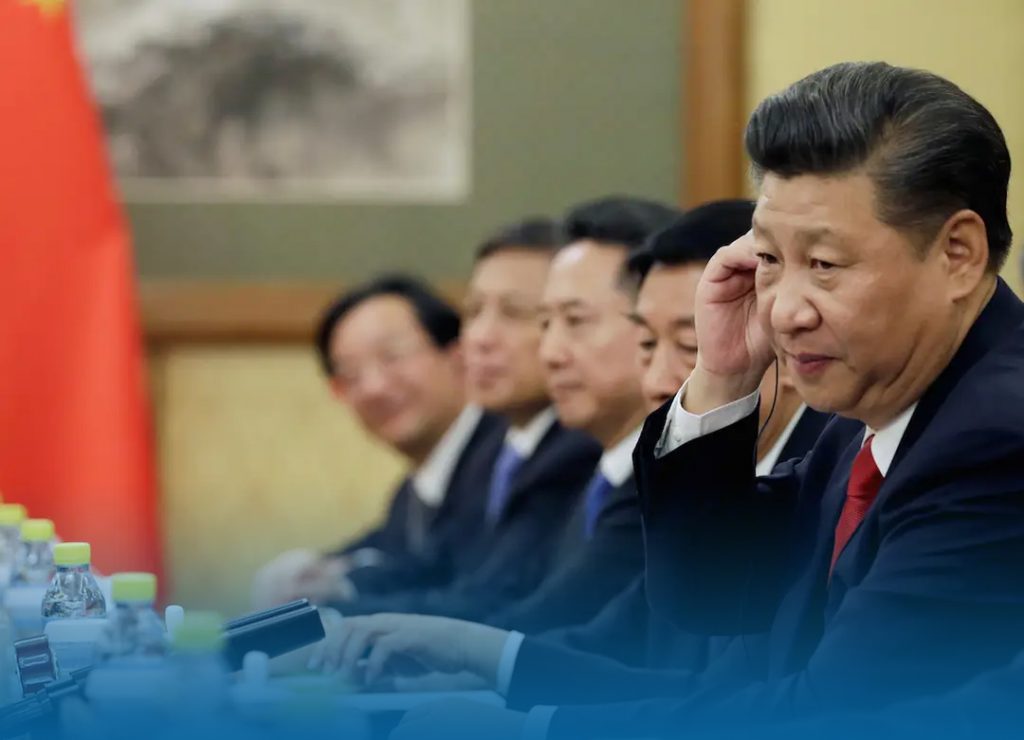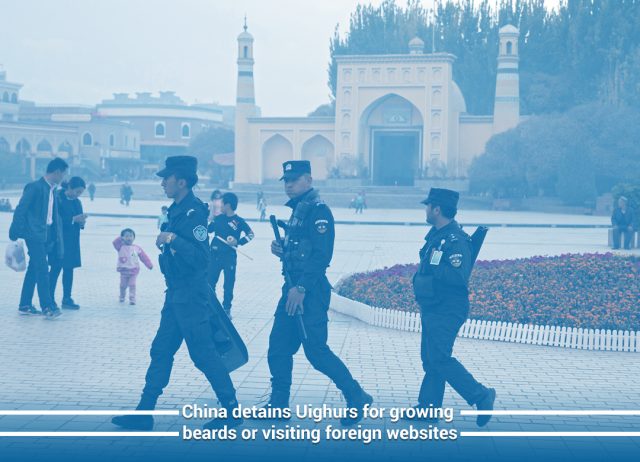The recently emerged Karakax list shows the systemic abuse of Chinese Uighurs in Xinjiang at the hands of the communist state. Leaked records enlist some strong insight on Chinese vigilance to curb any minor religious infection in its citizens confined in the internment camps set up by the authorities in a bid to re-educated the Muslim ethnic minority.
As per the leaked details, wearing a veil, accidentally landing on a foreign website, growing beard and having many too children were among the host of reasons cited by authorities for the detention of the Uighurs which make 97% of the population in Karakax County. 311 cases subject to the detention came from Karakax County that lies close to Hotan in southern Xinjiang an area home to over 90% Uighur population.
The document covering details of more than 3,000 individuals hailing from western region of Xinjiang the leaked files consisting 137 pages of columns and rows shed light on the plight of the Muslim minority who are often targeted on the accounts of how often they say prayers, the manner of their dressing, whom they meet and the way their other family members behave.
China covers up its prosecution of the Uighurs in the name of reeducating and rehabbing drives and denies any wrongdoing maintaining that its is combating religious extremism in the Muslim majority region.
Leaked by some anonymous source inside Xinjiang, the records are believed to be stemming from the same source that leaked a batch of highly confidential files published by international media last year.

One of the world’s leading experts on communist sponsored framework for social and political change in Xinjiang, Dr. Adrian Zenz, a leading figure at the Victims of Communism Memorial Foundation in Washington, believes the latest leak in genuine.
“This remarkable document presents the strongest evidence I’ve seen to date that Beijing is actively persecuting and punishing normal practices of traditional religious beliefs,” he says.
The classified database gives a glimpse into the life of detainees and their families who are tracked and categorized under the trustworthy, not trustworthy and their attitudes get the grading of ordinary or good. Families are scrutinized by rigid well-defined data embedded in columns and rows including light or heavy religious atmospheres as it goes one step further to delve into the details of detainee’s relatives serving a prison-term or having enrollment at a training center. Officials minutely examined the cases with different levels of suspicions even if they have no crime history.
Other reasons tabled by the officials justifying the internment included “minor religious infection”, “disturbs other persons by visiting them without reasons”, “relative abroad”, “thinking is hard to grasp”, and “untrustworthy person born in a certain decade”. The latter of the entries, points to the younger men according to Adrian Zenz who complied a report on the Karakax list.
“It underscores the witch-hunt mindset of the government, and how the government criminalizes everything,” said an expert on the so-called training centers and senior fellow at a Washington based Human Rights observatory dedicated to the Victims of Communism Memorial Foundation.
The most recent entry in the list dates back to March 2019. The Karakax county residents make the overwhelming number of cases in the document. The list was compiled after through interviews with former Karakax inhabitants, Chinese identity verification apparatus and other lists and documents corroborated by Associated Press. The database reckons most of the intel is human gathered by the teams of Cadres stationed at mosques, going door to door in various communities.
The information is then moved to dossier named “three circles” signifying info pertaining to the relatives, community and religious background of its subjects. It showed that Karakax officials explicitly targeted the people for their movement, applying for a passport, installing foreign software on their devices and surfing a website based outside mainland China.
The data mined by some unknown source in Xinjiang also shows the Chinese government officials detained people not just because of political extremism but ordinary religious activities such as praying, attending a mosque or even having a long beard. It also revealed the role of family as people with detained kin were more likely to feel the burn and end up in a communist internment camp.
Likewise, family background and attitude were a considered a bigger factor than behavior of the camper for their release.
“It’s very clear that religious practice is being targeted,” said Darren Byler, a University of Colorado fellow researching the use of surveillance technology in the province of Xinjiang. “They want to fragment society, to pull the families apart and make them much more vulnerable to retaining and reeducation.”
China decided to reform the far western region of Xinjiang under President Xi Jinping following train station blats conducted by militants in 2014. Beijing now dealing the Turkic minority with heavy hands is accused of mistreating the Uighurs and segregating the ethnic group based on their identity and faith. When asked whether Xinjiang was explicitly involved in targeting people because of their religion, foreign ministry spokesman Geng Shuang responded, “this king of nonsense is not worth commenting on”.
The Chinese authorities have long maintained that the centers are mandated to provide vocational training and skill it human-resource and is not discriminating anyone on the basis of their ethnicity or religious affiliation.















